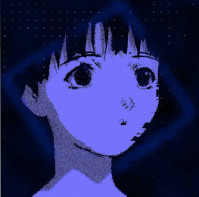1
2
3
4
5
6
7
8
9
10
11
12
13
14
15
16
17
18
19
20
21
22
23
24
25
26
27
28
29
30
31
32
33
34
35
36
37
38
39
40
41
42
43
44
45
46
47
48
49
50
51
52
53
54
55
56
57
58
59
60
61
62
63
64
65
66
67
68
69
70
71
72
|
* papers (26/09/24)
** RMS's papers [https://www.gnu.org/philosophy/fsfs/rms-essays.pdf] [2002, updated 2004]
- this paper is actually a list of many papers, the ones of note however can be found on page
17 (the GNU project), 44 (the defintion of free software), 57 (why free software is better than
open source), 91 (what is copy left), 121 (why software should be free)
- an individual writup on these papers can be found bellow
- the GNU manifesto can also be found here but will be covered individually
- these have all been fact checked and by countless individuals, the entire thing was edited by
lawrence lessig (Prof of Law, Stranford law school)
*** The GNU project [1999]
- a brief history of GNU
- started in the MIT AI lab in 1971
- the MIT AI lab broke down in the early 80's
- the AI lab had gotten a new system (PDP-10), which had made much of the previous work
unusable
- the new system was full of non-free software that was different to what they were used to
- these new systems made the idea of sharing software forbiden, which was completly different
from how it had been before
- many of the engineers from the AI lab where put into a new company called symbolics
- RMS continued the workd of the AI lab when he started GNU in 1984
*** The definition of free-software [1996]
- free software must follow 4 key values to be free
- [ ] the freedom to run a program for any use case
- [ ] the freedom to study how a program works and to addapt it to your needs
- [ ] the freedom to redistribute the program
- [ ] the freedom to edit and rerelease the program
- for software to stay free, these freedoms must be irevokable
- free software doesn't mean non-comercial, but the two often go hand in hand
*** Why free software is better than opensource [1998]
- this paper claims that opensource's goal is all about convients and ease of use, not
the ethical arguments that the free software movment pushes for
- the two movements are very closely linked
- the free software movement does not want to be linked with the opensource movement as the
core values are different
- the opensource movement is more permisive, not needing software to stay open and other such
things, this means that opensource lisences do not meet the criteria for free software
(see above for specific definiton)
- just because the movements are different doesn't mean that a specific member of one disagrees
with the other
- in the modern age the two are used interchanably, as most open source software is licensed
under the GPL which means it is also free software
*** What is Copyleft [1996]
- in its simple form, it just means releasing software as public domain, much like what happens
to copyright content after 70 years, execpt it skips the 70 year wait. this method works
however it has the error, this software can be redistributed as non-free software by a
company who need the functionality
- to make something copyleft, it needs to marked as copyright then have distribution terms
added to it, this can make it so it is in the public domain in the legal sense
- the rest of this document goes over much the same as the previous ones, discussing at how
the versions of the GPL are copyleft
- the main thing of copyleft is that it is a counter to copyright, it is designed to be anti-
ownership, and easy to add too and share
*** why software should be free [1992]
- proproses a counter argument to the idea that software is made to maximise profits, that
software should be made to better the public and the users
- proproses that the 'current system' would be best going and moving to putting the users first
- it talks about how non free software is a time and money investment for nothing; its harder
to work with, its more work to add to, it puts you at someone elses mercy
- a non-free program has lots of reasons not to use it
** The GNU maifesto [1984]
- the question why do people want to help (pp40) makes an intresting point that programmers are
unhappy with the corprate world entering their hobby, it states that programmers were
irritated by the direction software was moving towards
- the question why all computer users will benifit (pp42) also makes an intresting point that
free software will mean that computers are not just functional, but state of the art and
always moving forward (personal note, they did, the gnu+linux system is very robust, cant be
beat)
|
